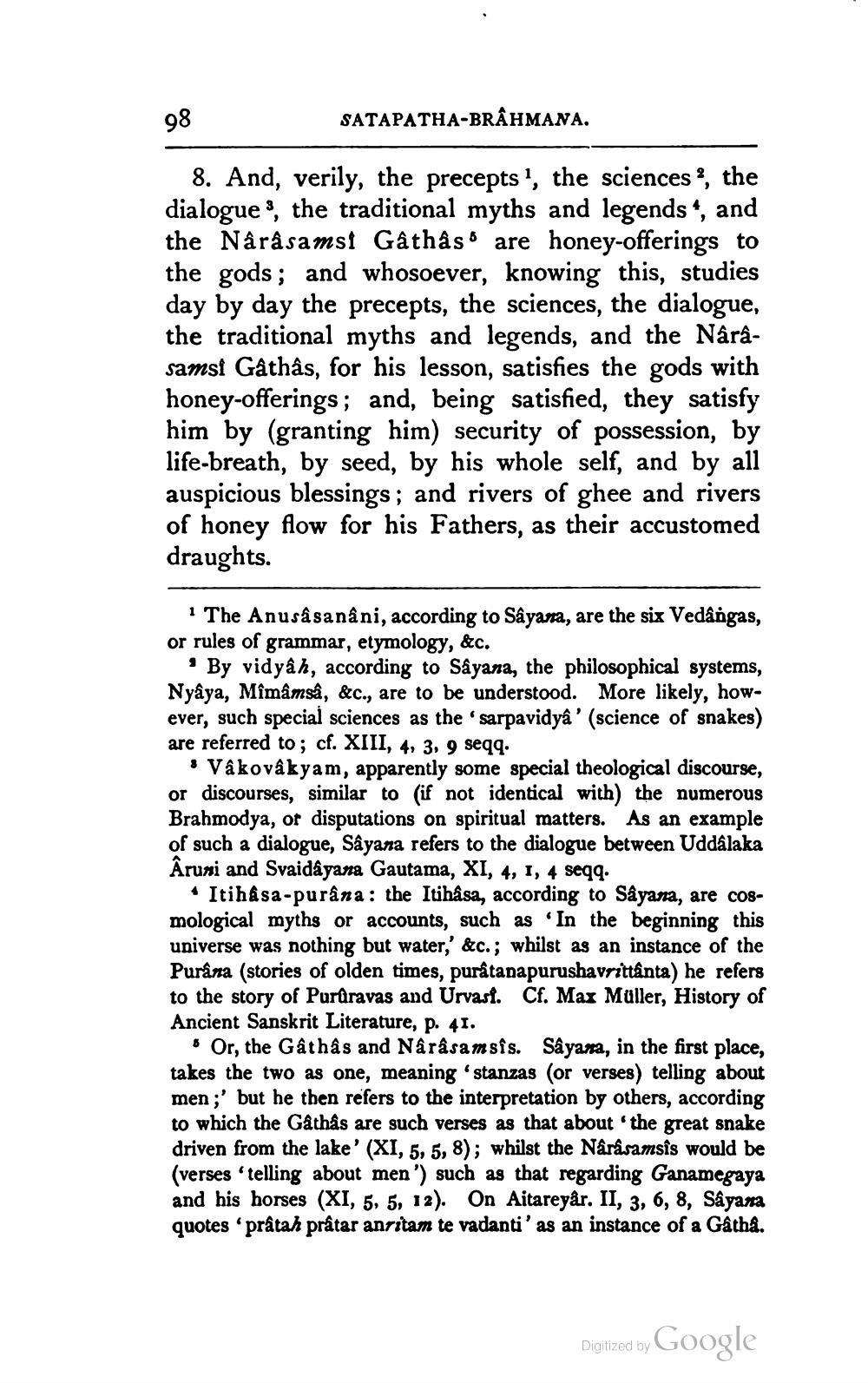________________
98
SATAPATHA-BRAHMANA.
8. And, verily, the precepts', the sciences, the dialogue, the traditional myths and legends, and the Nârâsamst Gâthâs are honey-offerings to the gods; and whosoever, knowing this, studies day by day the precepts, the sciences, the dialogue, the traditional myths and legends, and the Nârâsams! Gâthâs, for his lesson, satisfies the gods with honey-offerings; and, being satisfied, they satisfy him by (granting him) security of possession, by life-breath, by seed, by his whole self, and by all auspicious blessings; and rivers of ghee and rivers of honey flow for his Fathers, as their accustomed draughts.
1 The Anusâsanâni, according to Sâyana, are the six Vedângas, or rules of grammar, etymology, &c.
By vidyâh, according to Sâyana, the philosophical systems, Nyâya, Mîmâmsâ, &c., are to be understood. More likely, however, such special sciences as the 'sarpavidyâ' (science of snakes) are referred to; cf. XIII, 4, 3, 9 seqq.
' Vâkovâkyam, apparently some special theological discourse, or discourses, similar to (if not identical with) the numerous Brahmodya, or disputations on spiritual matters. As an example of such a dialogue, Sâyana refers to the dialogue between Uddâlaka Aruni and Svaidâyana Gautama, XI, 4, 1, 4 seqq.
Itihasa-purâna: the Itihâsa, according to Sâyana, are cosmological myths or accounts, such as 'In the beginning this universe was nothing but water,' &c.; whilst as an instance of the Purâna (stories of olden times, purâtanapurushavrittânta) he refers to the story of Purûravas and Urvast. Cf. Max Müller, History of Ancient Sanskrit Literature, p. 41.
Or, the Gâthâs and Nârâsamsîs. Sâyana, in the first place, takes the two as one, meaning 'stanzas (or verses) telling about men;' but he then refers to the interpretation by others, according to which the Gâthâs are such verses as that about 'the great snake driven from the lake' (XI, 5, 5, 8); whilst the Nârâsamsîs would be (verses 'telling about men') such as that regarding Ganamegaya and his horses (XI, 5, 5, 12). On Aitareyår. II, 3, 6, 8, Sâyana quotes 'prâtah prâtar anritam te vadanti' as an instance of a Gâthâ.
Digitized by
Google




